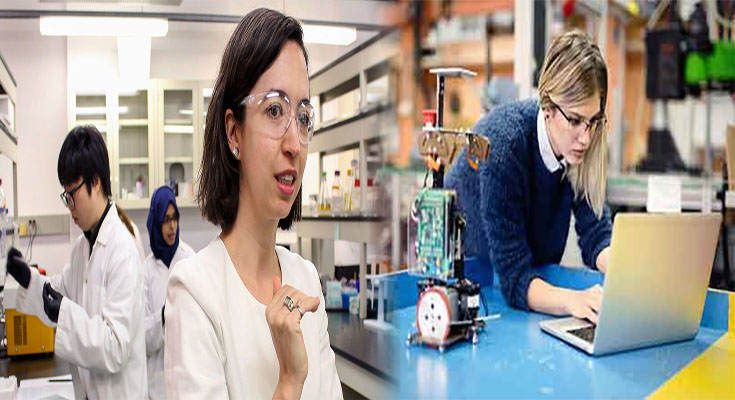Throughout history, women have made significant contributions to the fields of Science, Technology, Engineering, and Mathematics (STEM), despite facing numerous obstacles and gender biases. Their remarkable achievements have not only advanced our understanding of the world but have also paved the way for future generations of women in STEM. In this article, we will explore inspiring stories of women who have made groundbreaking contributions to science and continue to inspire and empower women in STEM fields today.
1. Marie Curie – Pioneer in Radioactivity Research
Marie Curie is perhaps one of the most iconic women in STEM. Born in Poland in 1867, Curie’s groundbreaking research on radioactivity led her to become the first woman to win a Nobel Prize. She won her first Nobel Prize in Physics in 1903, sharing the recognition with her husband and Antoine Henri Becquerel. Curie later received a second Nobel Prize in Chemistry in 1911 for her discovery of the elements polonium and radium. Her untiring efforts and dedication to scientific research have left an indelible mark on the world of science and continue to inspire women in STEM today.
2. Rosalind Franklin – Unraveling the Structure of DNA
Rosalind Franklin was a British chemist and crystallographer who played a crucial role in unraveling the structure of DNA. Though her contributions were often overshadowed during her lifetime, her X-ray diffraction work provided crucial data that helped James Watson and Francis Crick develop the famous double helix model of DNA. Franklin’s significant contributions posthumously earned her recognition and are a testament to her brilliance and determination, inspiring countless women in the field of genetics.
3. Katherine Johnson – Calculating the Trajectories for NASA
Katherine Johnson was an African-American mathematician whose calculations were instrumental in numerous space missions during her time at NASA. Johnson’s brilliance helped to calculate the trajectories for significant milestones, such as the Apollo moon landing and the first human spaceflight by an American, Alan Shepard. Despite facing discrimination and segregation, Johnson’s remarkable mathematical talent made her an invaluable member of NASA’s team. Her story, portrayed in the movie “Hidden Figures,” serves as a powerful inspiration for women and minorities striving for success in STEM fields.
4. Ada Lovelace – The World’s First Computer Programmer
Ada Lovelace, born in 1815, is often hailed as the world’s first computer programmer. Lovelace worked closely with Charles Babbage, a pioneer of early computers, and contributed significantly to his Analytical Engine project. She not only recognized the machine’s potential beyond pure calculation but also created an algorithm for it, making her the first person to envision and describe a general-purpose computer. Lovelace’s foresight and mathematical insight laid the groundwork for the digital revolution and has inspired generations of women in computer science and programming.
5. Mae Jemison – Astronaut and Advocate for Science Education
Mae Jemison shattered barriers as the first African-American woman to travel to space. She embarked on her historic journey in 1992 aboard the Space Shuttle Endeavour. Beyond her achievements as an astronaut, Jemison is a passionate advocate for science education, particularly for underrepresented communities. Through her work with various organizations, she has encouraged young people, especially girls, to pursue their dreams in STEM fields. Jemison’s dedication to promoting inclusivity in science continues to inspire and empower aspiring women in STEM worldwide.
These are just a few inspirational stories of women who have shaped the landscape of STEM and left a lasting impact on science. Their perseverance, brilliance, and commitment serve as a driving force for future generations of women in STEM. By highlighting their contributions, we aim to celebrate their achievements and encourage more women to pursue careers in science, technology, engineering, and mathematics. Together, we can foster a more inclusive and diverse scientific community that benefits us all.





